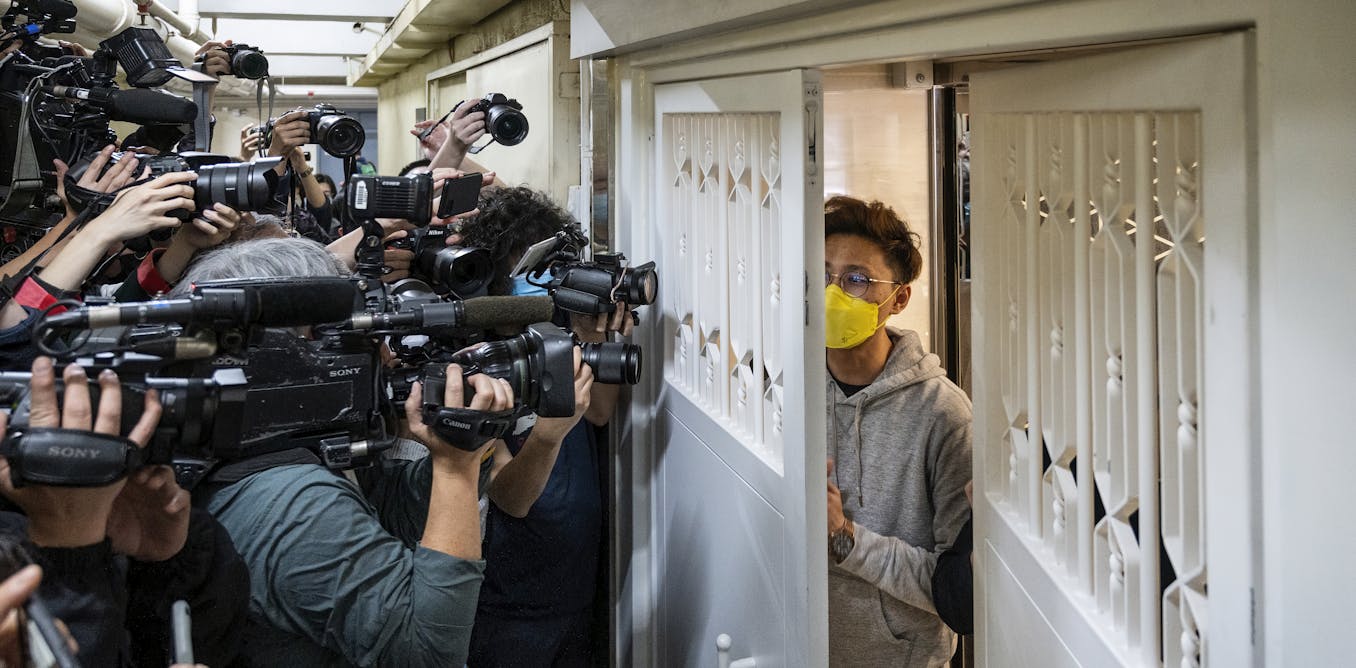
Hong kong: how colonial-era laws are being used to shut down independent journalism
- Select a language for the TTS:
- UK English Female
- UK English Male
- US English Female
- US English Male
- Australian Female
- Australian Male
- Language selected: (auto detect) - EN
Play all audios:
Hong Kong has never been a democracy, but it was home to a vibrant media scene and enjoyed the free flow of information. No more. The National Security Law (NSL), unilaterally imposed by
Beijing in 2020, cracked down on protest and effectively outlaws dissent. This law chilled free speech and forced the closure of the city’s sole pro-democracy newspaper, Apple Daily, in June
2021. Then, three days before the end of 2021, the city’s largest independent online media outlet, Stand News, came to a sudden end too. Local national security police arrested seven former
directors, columnists and editors of the outlet, which had never hidden its pro-democracy views, for alleged “conspiracy of publishing seditious publication”. Company materials were seized
and its financial assets frozen. The current and former editor-in-chief were criminally charged, and the outlet shut down its website and social media accounts and erased all its online
content. Amid growing self-censorship, independent digital media outlets like Stand News offered a space for more critical reporting and opinion. Stand News regularly provided in-depth
coverage of issues and individuals that were given short shrift or ignored in the mainstream media. The platform was funded mostly through monthly donations and crowdfunding. Soon after
Apple Daily closed, Stand News had taken preemptive action in response to what it called “the arrival of the literary inquisition” in Hong Kong. The outlet announced the resignations of all
but two of its directors, purged opinion articles from its website and suspended new donations. But this did not stop senior police figures from continuing to accuse the outlet of inciting
public hatred against the force. National security police have arrested more than 160 political dissidents and activists since the NSL was implemented. Apple Daily’s founder, Jimmy Lai, his
former employees and related companies were charged under the NSL with colluding with foreign forces. But high-profile arrests are just one part of the picture; the pressure on news
organisations and journalists takes multiple forms. In the media, pro-Beijing voices have attacked the Hong Kong Journalists Association and Foreign Correspondents’ Club. The government has
refused to renew work visas for foreign correspondents, and foreign news organisations like the Wall Street Journal have received threatening letters from Hong Kong government officials. THE
RETURN OF SEDITION LAWS The government is now also using colonial laws to crack down on free speech and the free press. Hong Kong’s sedition laws were introduced in the early 20th century
and can be overly broad and subjective. For example, anyone who publishes or distributes content that “brings into hatred or excites disaffection against” the government or the
administration of justice, or promotes enmity between different classes of people in Hong Kong, can be criminally prosecuted. These colonial-era laws have been unused since the 1970s, but
returned in autumn 2020 when the Hong Kong department of justice used them to charge activists who made public speeches against the government and unionists who published children’s picture
books about the 2019 pro-democracy protests. Now, they are being used to charge Apple Daily and Stand News journalists. And police recently told reporters that opinion articles aren’t the
only ones that can be regarded as seditious. Media interviews with exiled activists and features on clashes between protesters and riot police can also be considered seditious if the content
is deemed by the government to be “fake news” or inciting hatred towards the government and endangering national security. Newspaper editors and reporters now risk arrest if they have
published articles critical of the government, if political authorities decide they are seditious. As the sedition laws predate the NSL, that potentially includes articles published before
July 2020. Once they’re charged, journalists are likely to be denied bail and to face a long pre-trial detention. Before the NSL, anyone charged with committing acts of sedition could expect
to be granted bail unless the court suspected a high possibility they would reoffend or abscond. But under the NSL, this principle no longer applies. The latest ruling by the chief justice
in Hong Kong’s top court stated that as acts of sedition qualify as offences endangering national security, defendants will only be granted bail if they meet stringent requirements set by
the NSL. CHILLING EFFECT The impact on Hong Kong’s media has been immediate. At least six other independent digital media outlets chose to shut down following the closure of Stand News,
including Hong Kong Citizen News. Its chief editor, a respected news industry veteran, said the move was taken to protect staff in an environment in which nobody can be sure where the red
lines of sedition and national security are. The broadsheet Ming Pao Daily has started putting disclaimers on all opinion pieces, stating the paper does not intend to incite hatred, contempt
or disaffection against the government or any community. Hong Kong was once known for its independent judiciary and the rule of law. Now its laws and courts are being weaponised by the
government to crush press freedom and independent journalism. The government has also floated the possibility of a fake news bill this year. Unless the courts can uphold their integrity as a
guardian of free speech, the city’s international standing will be further eroded.